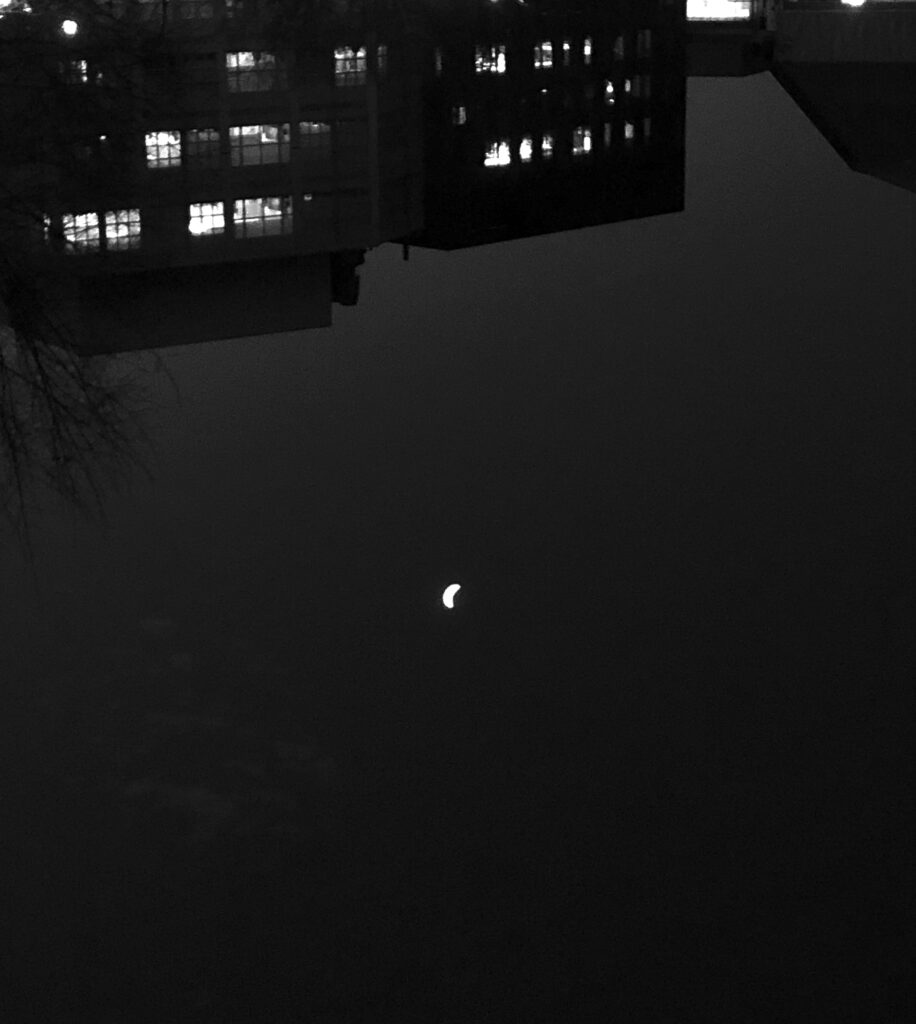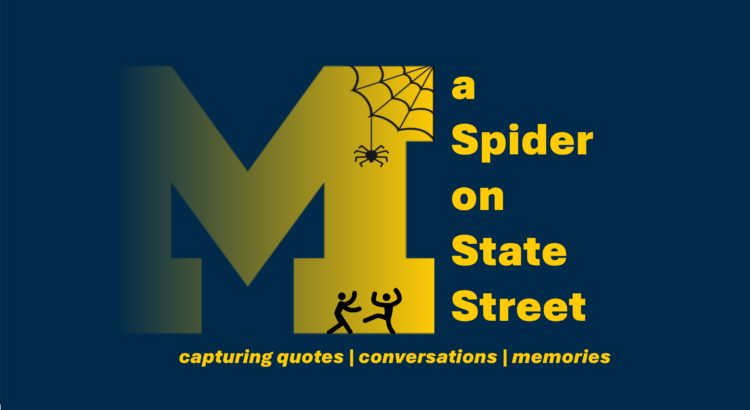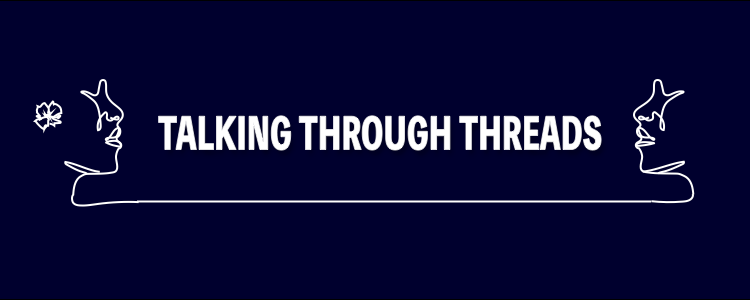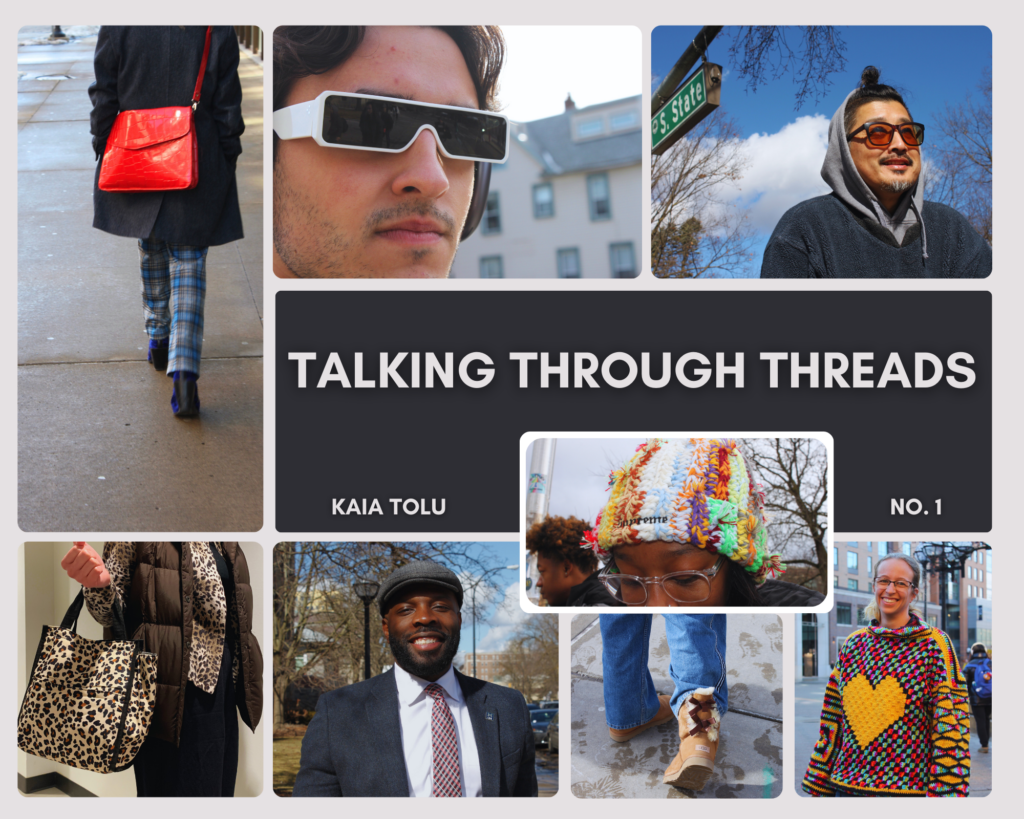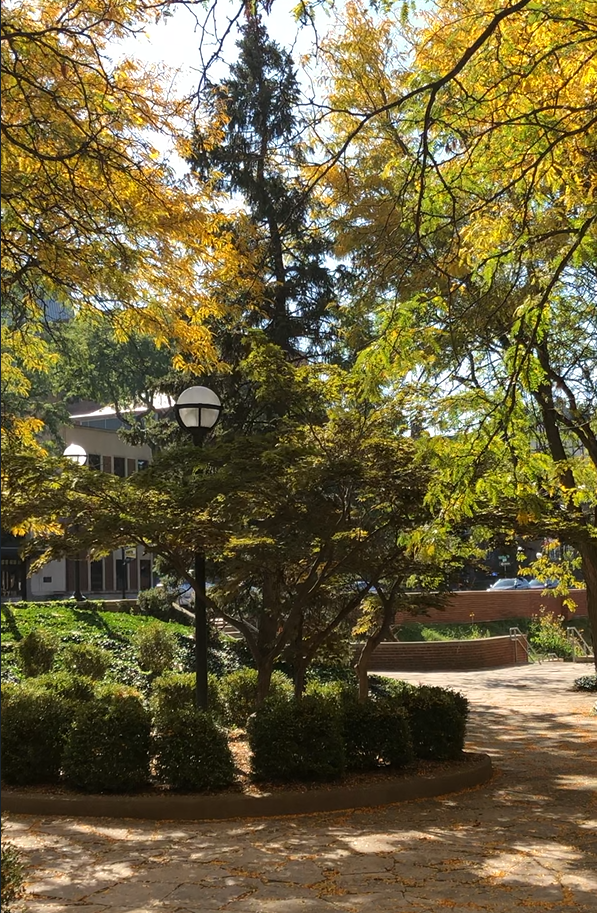We saw each other three weeks ago…
No we didn’t! I don’t remember this!
It was at the bus stop. Remember I went to Canada three weeks ago? We were making fun of Canada.
Duderstadt Library, 4:30PM, 2/4/2025
to think that we can live a thousand lives in the blink of an eye–one for each word, each feeling, a pixel of sunlight in the crook of your smile, cutting through the fog like a lotus in the mud. you are older now and the photo has faded from your memory–does this mean it even existed at all? as Forster put it: the king died, and the queen died of grief. just like a story worth telling is defined by the plot, a life worth living is defined by the details.
They didn’t have cell phones in ’96, at least the kids I worked with… life has changed in a relatively short period of time.
Jerusalem Garden, 12:30PM, 2/1/2025
we have run inside to escape, a one-way street with no reprieve. the playpen has been replaced by a touchscreen, a bright light projected from a black hole. do you think the grass misses the footsteps? such is the cycle of attention, the rhythm of the rivers and the stars. the same way the brook bends against the underbrush: restless, ceaseless, the water strumming the chords of river rock. the guilt settles and hardens like a gumdrop–the feeling has passed, but the dust has already settled.
Another text in the group chat! This man hasn’t texted us for two years and now he’s texted us twice! He misses us!
Science Learning Center, 5:00PM, 2/19/2025
an analogy: if the chef brings out a dessert and you gulp it down in one bite, you experience the short-term pleasure of the meal without regret. you pay the bill and take your leave; you live in the moment; you forget. but instead if you take incremental bites, savoring the flavor, your pleasure is extended–but so is your awareness of the ending, the certainty that at any moment you will reach for the fork and find an empty plate. which, then, is the greater heartbreak: to be ignorant, or appreciative, of the timeline? to lose without knowing, or to count each moment as it slips away?
–your breath shudders, for you know this is the voice of a mute and the word of a liar. into my ear you whisper goodbye in your language–i ask you what it means and you say i love you—
